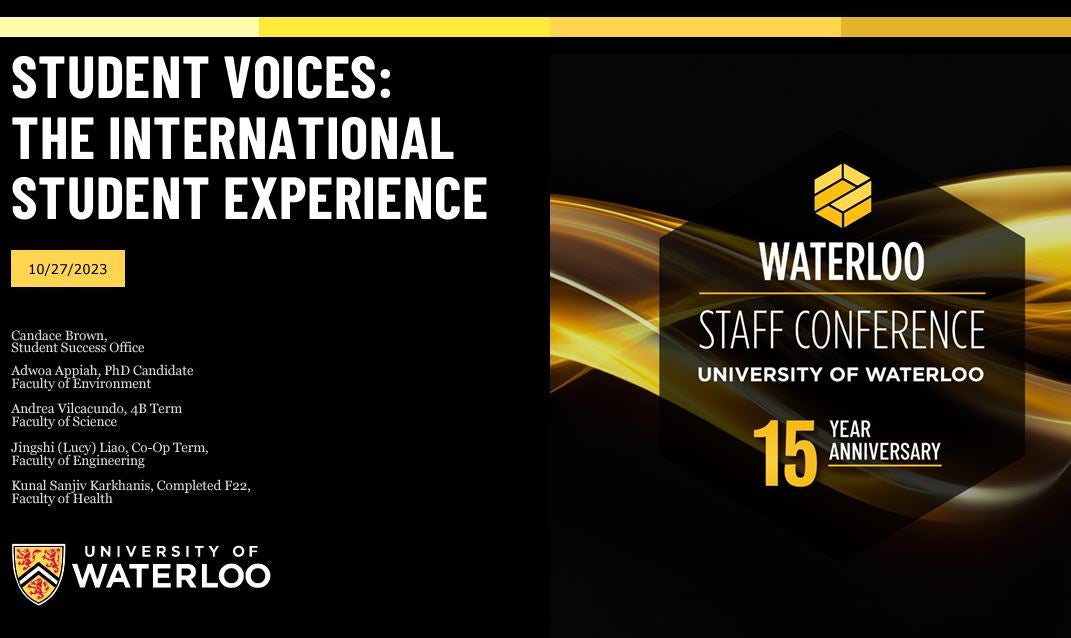International students make up 22% of the undergraduate population and 40% of the graduate population. Unique supports are required to ensure international students develop a sense of belonging during their time at Waterloo.
Key resources for staff and faculty to be aware of include:
- Past editions of the International Student Connection newsletter, a monthly publication that is distributed to international undergraduates and graduates. The latest copy is normally added by the end of the first Friday of each month.
- Presentations on international student experiences at Waterloo, available below.
- A downloadable version of the international student resources offered at the NEW International Experience Centre (IEC)!
To learn more about the international student experience team's work, contact Candace Brown.
Presentations
Student voices: the international student experience presentation (2023)
Access slides and speaking notes | Watch the presentation (.mp4)
This session explores results from the University of Waterloo's results from CBIE's International Student Voice Survey.
This presentation covers three main findings from the data: institutional support services and satisfaction, academic experience and post graduation plans. We enrich the survey's quantitative results with student panelists sharing of their own lived experiences.
Myths and realities of the international student experience (2019)
Access the presentation deck (.pdf)
If you’re struggling with “what do I do?” when it comes to supporting the international student experience, refer to three big actions which can help you support all students. These actions are reviewed in the presentation slides and include example scenarios.
This presentation was given at the University of Waterloo Staff Conference 2019.
1. Reflect on your reactions
- Pay attention to how you're reacting to a situation, positive or negative.
- If you feel frustration or confusion, take a moment to pause and reflect on what's happening and reconsider your approach.
- You don't have to be an expert on every culture in the world. Remember, both you and the people you're communicating with are trying very hard to be respectful and heard. You might be working with different expectations.
2. Be curious and vulnerable
- Connecting with others sometimes means sharing something about yourself.
- Don't let the fear of being impolite, awkward, or misunderstood keep you from connecting. Everyone appreciates an effort to help.
- Names are important. It's worth making an effort to get it right, even if it makes you nervous. Even if you have to try several times.
- Find your favourite ice breaker question, like "What's your favourite part about Waterloo so far?"
3. Be a referral expert
- Consider the what – what services, opportunities, or supports might you mention to students?
- And consider the how – how are you presenting information? Is it in a way that’s understandable? Does it provide space for asking for clarification or additional support?
- Students may need more information about why a service or opportunity exists. You may also need to help break down cultural barriers that prevent a student from getting help or seeking a great opportunity.
